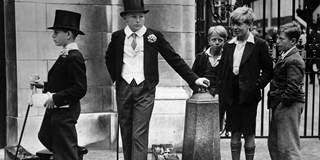In recent decades, the wealth gap between a narrow upper class and the rest of the human population has become a gaping chasm, with far-reaching implications for most countries around the world. Rising inequality may be the greatest economic challenge of our time, but it’s not the first time human civilization has faced it.
- Walter Scheidel, The Great Leveler: Violence and the History of Inequality from the Stone Age to the Twenty-First Century, Princeton University Press, 2017
- Branko Milanovic, Global Inequality: A New Approach for the Age of Globalization, Harvard University Press, 2016
- Peter Temin, The Vanishing Middle Class: Prejudice and Power in a Dual Economy, MIT Press, 2017
- Keith Payne, The Broken Ladder: How Inequality Affects the Way We Think, Live, and Die, Viking, 2017
- Chrystia Freeland, Plutocrats: The Rise of the New Global Super-Rich and the Fall of Everyone Else, Penguin Press, 2012
MILAN – The world is becoming increasingly unequal, and at an astonishing pace. According to Oxfam, in 2010, 388 billionaires owned as much private wealth as the poorer half of the global population. By 2016, a mere eight people did. The Great Recession that followed the 2008 financial crisis has hit the vulnerable especially hard, while many of the gamblers who triggered it have grown wealthier.
The accumulation of massive fortunes by a tiny coterie of plutocrats represents the tipping point in a more complex phenomenon. Although China’s meteoric rise to become the world’s second-largest economy (by GDP) has compressed inequality at the global level, the fact remains that disparities within most countries have been expanding rapidly.
In developing economies, the past three decades of globalization have produced a burgeoning urban middle class, but widened the gap between cities and rural regions. And in advanced economies, globalization and technological progress have conferred significant benefits on a small minority of highly qualified professionals, but squeezed the middle class. The standard of living for those not at the top of the income scale has stagnated, owing to the availability of cheap labor abroad and inadequate redistributive policies at home.

MILAN – The world is becoming increasingly unequal, and at an astonishing pace. According to Oxfam, in 2010, 388 billionaires owned as much private wealth as the poorer half of the global population. By 2016, a mere eight people did. The Great Recession that followed the 2008 financial crisis has hit the vulnerable especially hard, while many of the gamblers who triggered it have grown wealthier.
The accumulation of massive fortunes by a tiny coterie of plutocrats represents the tipping point in a more complex phenomenon. Although China’s meteoric rise to become the world’s second-largest economy (by GDP) has compressed inequality at the global level, the fact remains that disparities within most countries have been expanding rapidly.
In developing economies, the past three decades of globalization have produced a burgeoning urban middle class, but widened the gap between cities and rural regions. And in advanced economies, globalization and technological progress have conferred significant benefits on a small minority of highly qualified professionals, but squeezed the middle class. The standard of living for those not at the top of the income scale has stagnated, owing to the availability of cheap labor abroad and inadequate redistributive policies at home.